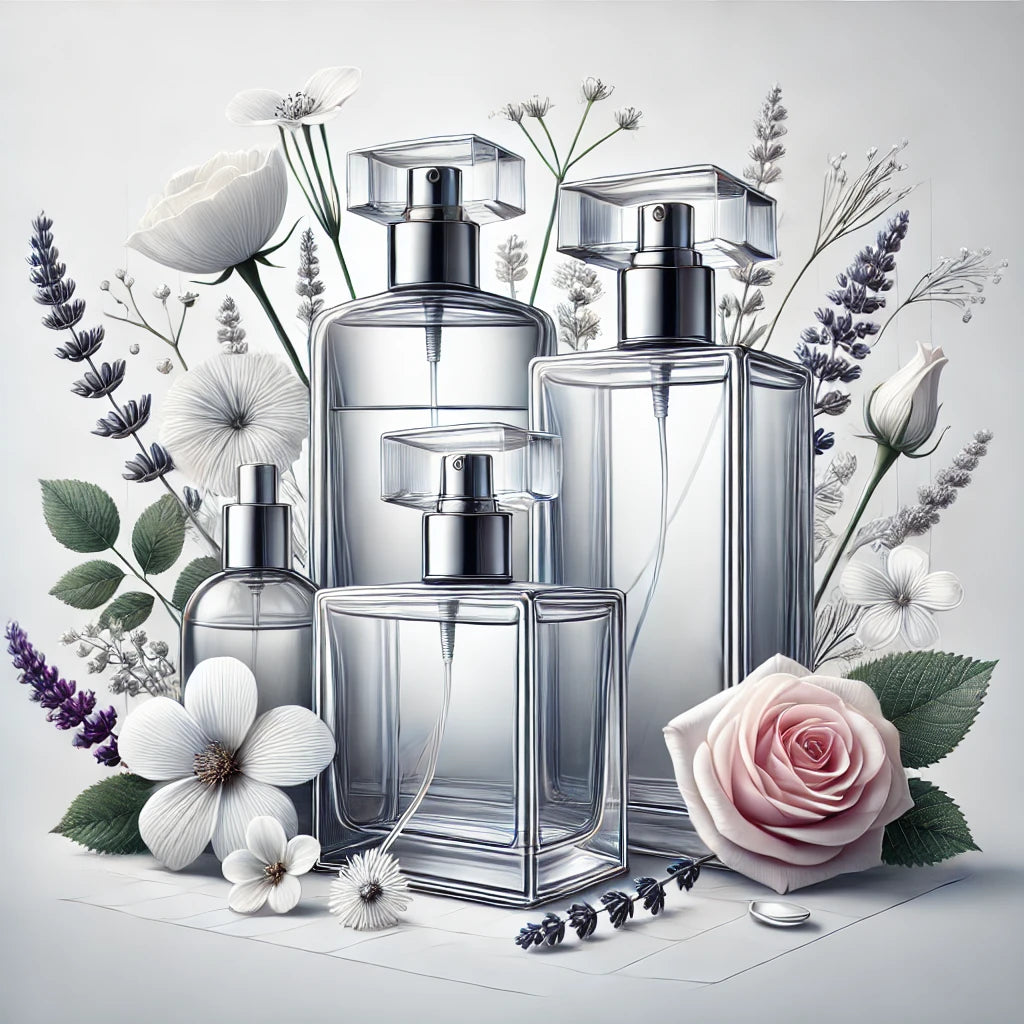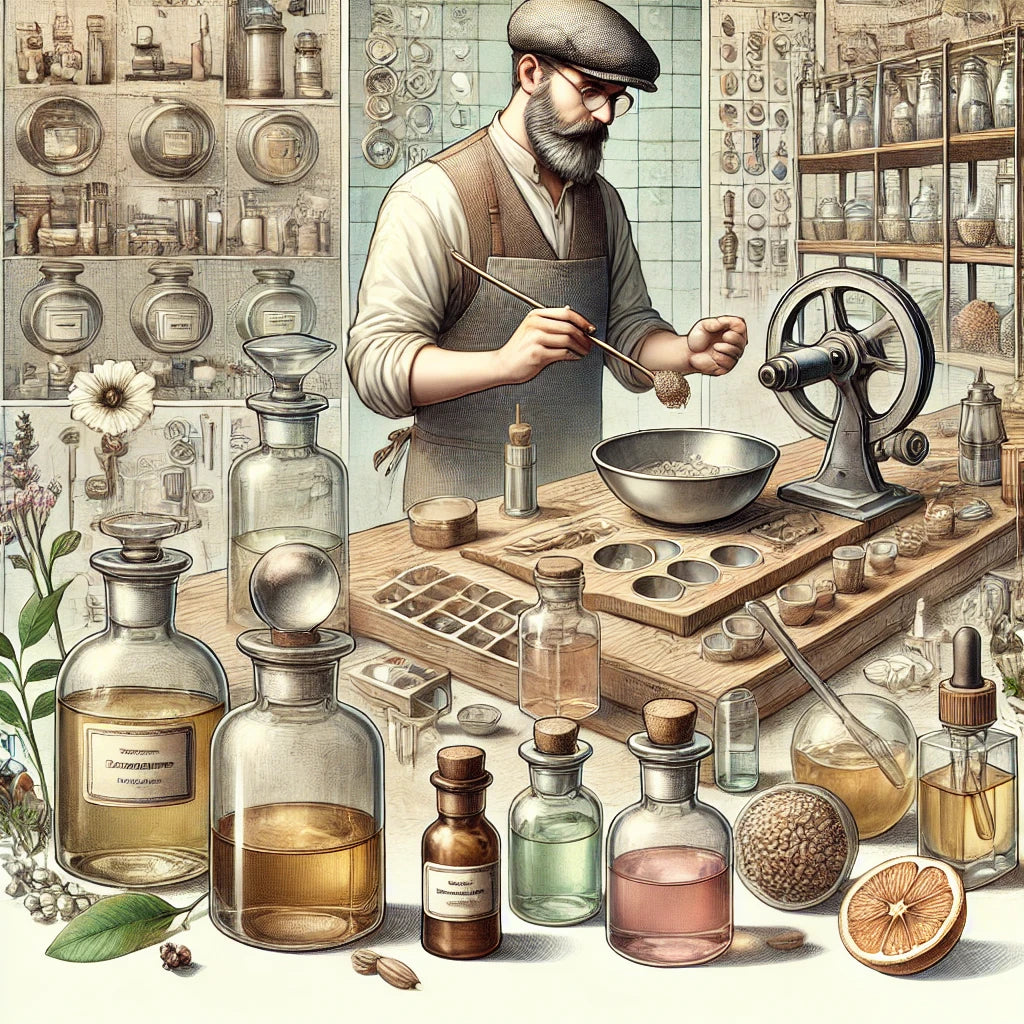History of perfume
The fascinating history of perfume making: From the beginnings to modern art
The history of perfume stretches back thousands of years and tells of the mysteries of nature, the passion for fragrance, and the tireless search for the perfect aroma. While perfumes are now part of our everyday lives, their creation was once a highly respected art reserved only for the powerful and wealthy. In this article, we take you on a journey through the history of perfumery—from ancient civilizations to modern masterpieces.
The origins of perfumery
The first records of the use of fragrances date back to ancient Egypt, over 4,000 years ago. At that time, perfumes were an integral part of religious ceremonies. The Egyptians believed that scents enabled contact with the gods. They burned aromatic resins such as frankincense and myrrh in temples to honor the gods. At the same time, perfume played an important role in everyday beauty care. Queens such as Cleopatra were known for their extravagant use of fragrances derived from rare flowers and herbs.
Fun Fact: The word “perfume” is derived from the Latin “per fumum,” which means “through smoke,” and refers to the ancient smoking ceremonies.
Perfume in Antiquity and the Middle Ages
Over time, knowledge of perfume production spread from the Mediterranean to Persia, Greece, and Rome. The Persians, in particular, developed their own sophisticated distillation technique, which made it possible to extract essential oils from plants. This method laid the foundation for modern perfume production.
In the Middle Ages, perfume was highly regarded, especially in the Arab world. The famous Persian physician Avicenna revolutionized perfume production by distilling rose oil, creating the first true "perfume" that consisted of more than just resinous substances.
The Renaissance of Perfume Production
During the 14th and 15th centuries, Europe experienced a true renaissance in the art of perfumery. Florence and Venice became the centers of the perfume trade, and Italian perfumers began exporting their fragrances throughout Europe. It was the era of the great courts, where kings and nobles viewed perfume not only as a fashion accessory but also as a status symbol. Especially in France, perfume became the ultimate luxury item.
The court of Louis XIV, known as the "Perfumed Court," achieved worldwide fame. The French king was obsessed with scents and regularly had his rooms scented with various perfumes. Soon after, France became the global center of perfume production—a role it maintains to this day.
The Industrial Revolution and Modernity
With the Industrial Revolution in the 19th century, perfume production changed fundamentally. Chemists began developing synthetic fragrances that made it possible to create more complex and lasting scents. These new technologies made perfume accessible to a wider segment of the population, something that had previously been almost exclusively reserved for the elite.
Modern perfumery is no longer just about imitating nature. Today's perfumers, also known as "noses," combine natural and synthetic ingredients to create entirely new fragrance worlds. Brands experiment with unusual combinations and launch new masterpieces year after year.
The creative process of perfume making today
The creation of a modern perfume is a creative and technical process that can take months or even years. It begins with the selection of raw materials—whether exotic flowers, aromatic woods, or synthetic molecules. These are then processed using various techniques such as distillation, extraction, or cold pressing to extract the precious fragrance essences.
A perfumer creates a composition of different fragrance notes that blend together to create a harmonious whole. This composition is then dissolved in alcohol or water to create the finished perfume. It's a true art to find the perfect balance between top, middle, and base notes, so that the fragrance not only impresses at first glance but also unfolds its facets over the course of hours.
Conclusion: Perfume as a timeless art
The history of perfumery is closely intertwined with the history of humanity—from the first fragrant incense rituals to the masterfully crafted bottles of today. Perfume is more than just a scent; it is a form of expression, a memory, a statement. And even though techniques have evolved over the centuries, the fascination with the interplay of scents remains unbroken.
If you're looking for exceptional niche fragrances that are unique in their creation and quality, visit our exclusive perfume collection at https://maisonnoblesse.com/collections/all . Let yourself be enchanted by the magic of scents and find the fragrance that tells your story.


